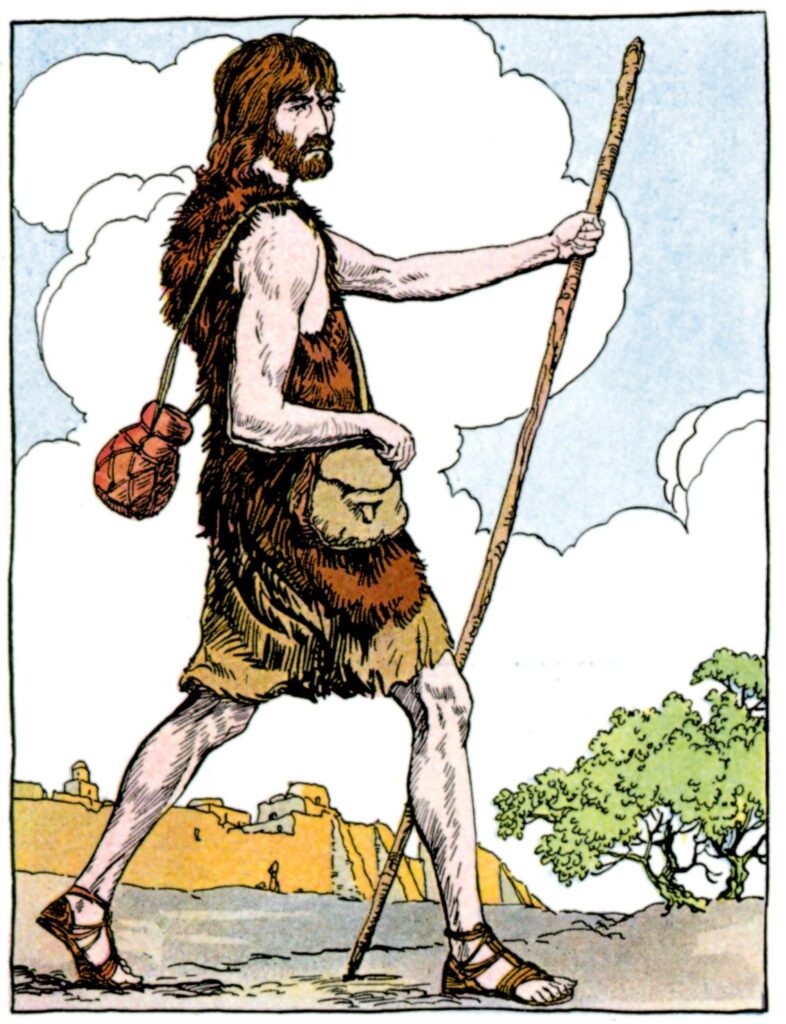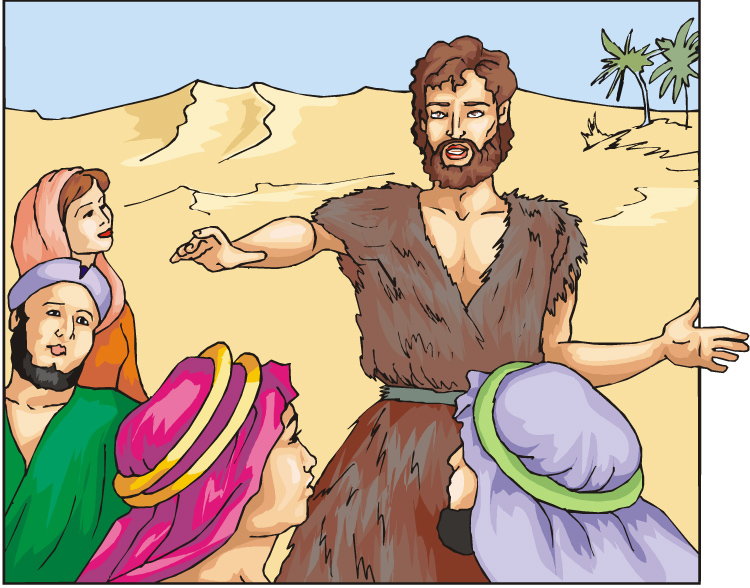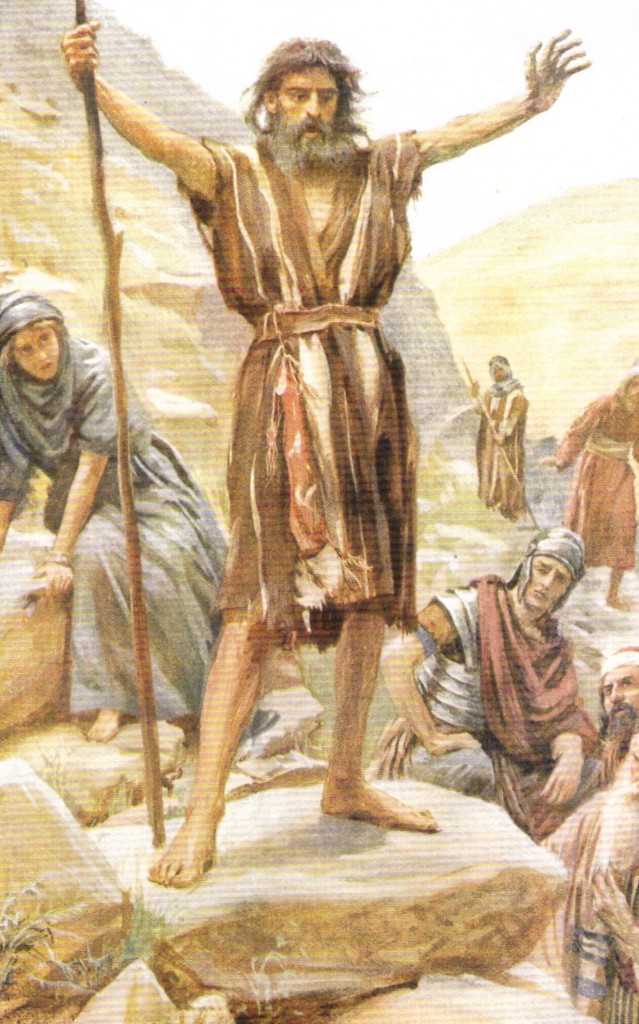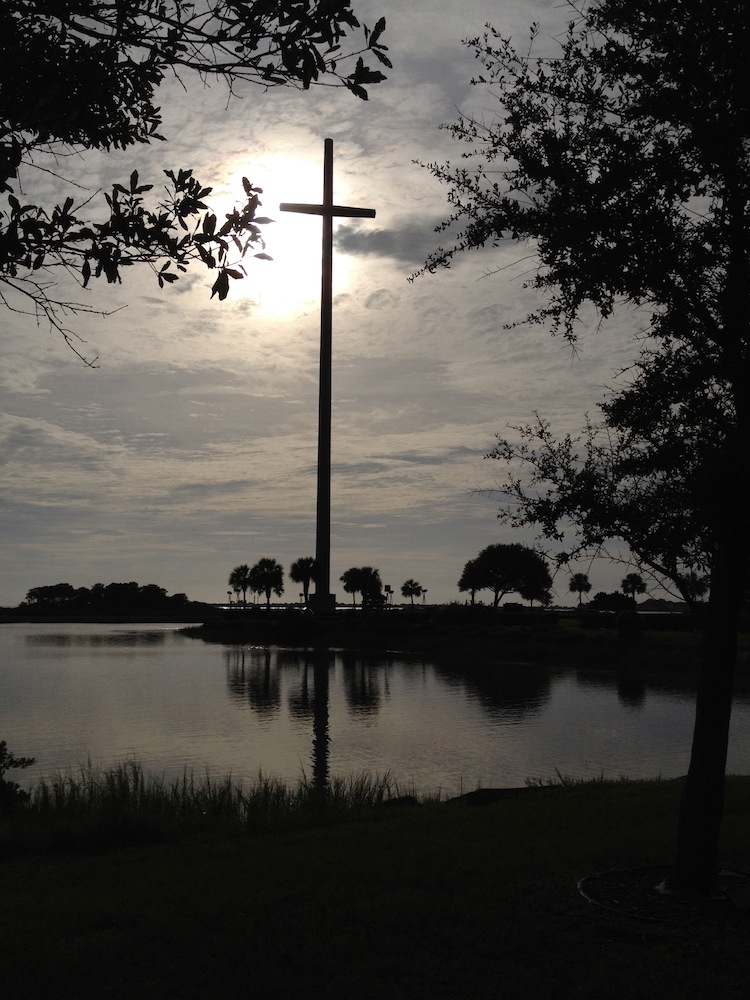
Psalms 22, 23 and 24 form a prophetic, messianic trilogy pointing to the circumstances surrounding the death (Psalms 22 and 23), resurrection (Psalm 23) and enthronement of Yeshua as King over Israel (Psalm 24). Psalm 24 shows how a person can ascend the “mountain” of Elohim and come into the presence of our Father in heaven. This psalm also presents the Messiah as YHVH and as the doorway to righteousness and salvation for those who seek him. He is the only way to the Father in heaven, if one will only open the door of one’s heart and let him come into one’s life.
Psalm 22
Psalm 22:1–7, You forsaken me…enthroned in the praises. When it seems that Elohim has forsaken us and the heavens seem like brass, this is the time to praise Elohim, and his presence will come. It is also the time to recall and even remind him of all the good things that he has done for us in times past (vv. 4–5). This is despite the fact that the brutish and abusive behavior of others against us often makes us feel as low as a worm (vv. 6–7). Praising and trusting in Elohim at such times is counter intuitive to the natural human mind. It is in such times that one is inclined to cease believing in their Creator and, to one degree or another, forsake him and or abandon their faith altogether. Yet at these times, this is when the faithful saint seeks the Almighty all the more, even as Yeshua did while in praying in the Garden of Gethsemane and while hanging on the cross—the very thing to which this psalm prophetically pointed. For it is verse one of this psalm that Yeshua quoted while hanging on the cross dying. He was telling us that we was the fulfillment of the prophecies contained in this psalm. In fact, this psalm has several prophetic referential touch points to Yeshua’s last moments just prior to his ignominious death. They are:
Verse 1— “My Elohim, my Elohim, why have you forsaken me?”
Verse 6— “A reproach of men, and despised by the people.”
Verses 7–8— “All those who see Me ridicule Me; They shoot out the lip, they shake the head, saying, ‘He trusted in YHVH, let Him rescue Him; Let Him deliver Him, since He delights in Him!’”
Verses 9–10— “But You are He who took Me out of the womb; You made Me trust while on My mother’s breasts. I was cast upon You from birth. From My mother’s womb You have been My El.”
verse 14— “I am poured out like water, and all My bones are out of joint; My heart is like wax; It has melted within Me.”
Verse 15— “My strength is dried up like a potsherd, And My tongue clings to My jaws; You have brought Me to the dust of death.”
Verses 16–17— “For dogs have surrounded Me; The congregation of the wicked has enclosed Me. They pierced My hands and My feet; I can count all My bones. They look and stare at Me.”
Verse 18— “They divide My garments among them, And for My clothing they cast lots.”
Because of these prophetic references to the events surrounding Yeshua’s death, Psalm 22 ranks as one of the greatest messianic prophecies in the entire Tanakh. There are simply too many unique and direct references to the specific circumstances of Yeshua’s crucifixion as recorded in the Gospels to be merely coincidental. For example, how could the psalmist have known about the Roman mode of execution known as crucifixion some 1,000 years before this event occurred? Actually, the earliest crucifixions as recorded in history were performed by the Persians and Greeks as early as 500 BC, which is still some 500 years before David penned this psalm.
Psalm 22:3–4, Enthroned…delivered them. Praise and worship is a spiritual warfare weapon. (On the dynamic spiritual power of godly music, see 2 Chron 20:20–23 and notes at 1 Sam 16:23).
Psalm 22:3–5, They trusted…you delivered. Praise and worship combined with trusting faith in YHVH is a spiritual warfare weapon that brings the saints deliverance from their enemies.
Psalm 22:12, Bulls of Bashan. Bashan is in the area of Mount Hermon in northern Israel. The southern base of Mount Hermon, in ancient times, was regarded by the pagans as Satan’s seat and the gates of hell. There the pagans erected a temple to the demon-god Pan. Later it became known as Caesarea Philippi, and there Yeshua confronted Satan by declaring that the gates of hell would never prevail against his church (Matt 16:18).
Psalm 22:26, See notes on Psalm 49:15.
Psalm 23
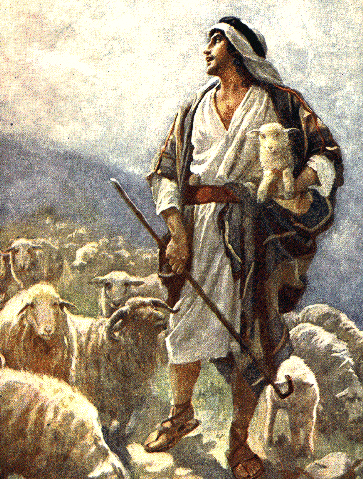
Natan’s Reflections on Sheep and on Being a Shepherd of Sheep on the Family Farm
David, the author of this psalm, was a literal shepherd of sheep as we all know. This is something that both David and I had in common. This is because I lived on sheep farm from age six to 24, and like David, it was my duty to care for the sheep. We can learn a lot about ourselves and other people when we hang out with sheep. Being a shepherd makes the Bible come alive, since YHVH Yeshua likens his people to sheep, and he is our Good Shepherd who cares for us (John 10:11, 14).
During my time on the family farm, it was my responsibility to care for the sheep including feeding them twice daily, caring for the lambs, protecting the sheep from predators, keeping the gates and fences that surrounded them in good conditions, cleaning their barns, helping the ewes give birth as needed, tending to sick and wounded sheep, leading them from pasture to pasture, shearing them, and finally, butchering them. I have wrestled with sheep, chased them, led them, fed them, fondled them, sheared them and even butchered them. I loved the sheep that were under my care, and to this day, decades later, I still feel a deep, visceral love in my gut when the thought of sheep come to my mind. Whenever I have the opportunity to be around sheep, if they are tame,you will find me out with them fondling their heads and scratching them behind their ears.
Later, I married and became the father of four children and had the opportunity to shepherd my own flock of human sheep. After that, my wife and I started a congregation which I pastored or shepherded (as I like to say) for 18 years where I shepherded “sheeple.”
Here are a few of my reflections on literal sheep and caring for them and how they are like YHVH’s people (or “sheeple”).
Sheep are defenseless. About all they can do is run from a predator, and they are not fast runners. They will run until they tire out, and then will simply fall down exhausted becoming a hapless victim. When a ewe feels threatened, especially when she has lambs, she will look at you in the eye and stomp her hoof determinately in the ground as it to say, “Don’t come any closer, or I will…do something to you, but I don’t have a clue what….” It is all show, for there is nothing she can do, but hope to out run her attacker. In reality, it’s a pitiful and hopeless situation.
Continue reading


